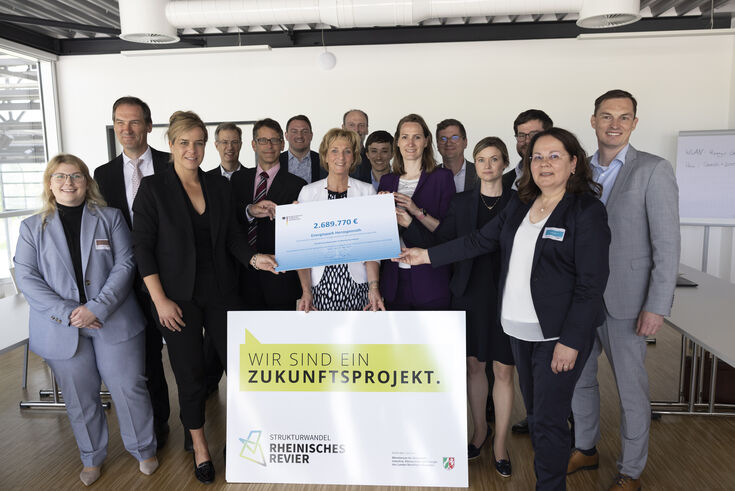Now it's officially sealed: Herzogenrath has set itself the goal of becoming the first city in North Rhine-Westphalia to establish a CO2-neutral energy supply by 2030. The project is being funded with around 2.7 million euros as part of the Energiepark Herzogenrath research project. The SWK E² - Institute of Energy Technology and Energy Management of the Hochschule Niederrhein (SWK E²) is part of the research consortium.
In the project, SWK E² is analyzing the energy markets (electricity, natural gas, heat, hydrogen) in order to be able to optimize the operation of the individual components of the energy system of the future in the Herzogenrath Energy Park in line with market, grid and system requirements.
"With the energy park, the city of Herzogenrath can become a model for many other municipalities in the Rhenish mining region and throughout Germany. It is a great opportunity for The Hochschule Niederrhein to be able to contribute to this project," says Professor Dr.-Ing. Frank Alsmeyer, who co-initiated the project from the HSNR side.
The North Rhine-Westphalian Minister for Economic Affairs and Climate Protection, Mona Neubaur, together with a representative of the Federal Ministry of Economics and Technology, handed over a federal funding check to the partners of the energy park last week.
The handover to the research consortium comprising Siemens Energy, RWTH Aachen University, Aachen University of Applied Sciences and the Hochschule Niederrhein took place at the "Perspektiven Rheinisches Revier" event in Mönchengladbach. Robert Habeck, Vice Chancellor and Federal Minister for Economic Affairs and Climate Protection, was also digitally connected to the event and highlighted the project around the Herzogenrath Energy Park as groundbreaking. More than 50 million euros in structural funding has been earmarked for the overall project.
The research project aims to develop the technology for a stable, secure and CO2-neutral energy supply for a medium-sized town, using Herzogenrath as an example. The concept takes into account industrial operations as well as new prosumers in the city and is based on decentralized PV systems, heat pumps and electromobility. For this purpose, digital twins of the energy system of Herzogenrath and the industrial operations such as the sand mine and the sewage treatment plant are to be created so that their safe operation and CO2-neutral energy supply can be ensured and operated in a stable and safe manner by exploiting sector coupling and optimized for lowest energy costs.


















